International symposium and workshop on POST 2011 Tohoku triple disaster: Lessons and their global application on multi–hazards and cascading disasters
Information
This workshop will discuss the post 2011 strategy as a memorial event of the 2011 Great East Japan triple disasters that pointed out the importance of mitigating major disasters through the perspectives of multi–hazards and their cascading effect as well as the Covid–19 Pandemic related emergency management issue.
Date
June 30, 2021 10:00–17:00 (JST)
Venue
Online event: (Zoom) Hosted by Tohoku Forum for Creativity
Capacity: 250 people (first–come–first–served basis, registration required)
Registration
– Closed
Registration deadline: Monday, June 28, 2021, 10:00 (JST)
Speakers
David Alexander (Institute for Risk and Disaster Reduction, University College London)
Eddie Bernard (Tsunami Consultant, USA)
Andrew Gordon (Department of History, Harvard University)
Kenji Satake (Earthquake Research Institute, the University of Tokyo)
Rajib Shaw (Graduate School of Media and Governance, Keio University)
Syamsidik (Tsunami Disaster Mitigation Research Center, Syiah Kuala University)
Time Schedule [Aug. 04, 2021 Updated]
- Moderator: Elizabeth Maly (IRIDeS, Tohoku University)
- Session 1 Social and cultural perspectives
- Chair: Sebastien Boret (IRIDeS, Tohoku University)
- 10:00 – 10:05
- Opening remarks
- Fumihiko Imamura (Director of IRIDeS, Tohoku University)
- 10:05 – 10:10
- Opening remarks
- Toshiyuki Takagi (Vice Director, Tohoku Forum for Creativity)
- 10:10 – 10:40
- Eddie Bernard (Tsunami Consultant, USA)
- Using UNDERESTIMATED and UNIDENTIFIED tsunami related hazards from the 2011 Tohoku tsunami to refine existing tsunami mitigation practices throughout the world Video
- 10:40 – 11:10
- Andrew Gordon (Department of History, Harvard University)
- Learning from the Great East Japan Earthquake and Tsunami Video
- 11:10 – 11:30
- Student presentation 1
- 11:30 – 12:00
- Q&A and general discussion
- 12:00 – 13:00
- Lunch break
- Session 2 Science and technology perspectives
- Chair: Anawat Suppasri (IRIDeS, Tohoku University)
- 13:00 – 13:30
- Kenji Satake (Earthquake Research Institute, the University of Tokyo)
- Development of earthquake and tsunami studies since the 2011 Tohoku earthquake Video
- 13:30 – 14:00
- Syamsidik (Tsunami Disaster Mitigation Research Center, Syiah Kuala University)
- Adopting Lessons Learned from the 2011Great East Japan Earthquake and Tsunami for Tsunami Mitigation in Banda Aceh Video
- 14:00 – 14:20
- Student presentation 2
- 14:20 – 14:50
- Q&A and general discussion
- 14:50 – 15:00
- Break
- Session 3 Public health and governance perspectives
- Chair: Elizabeth Maly (IRIDeS, Tohoku University)
- 15:00 – 15:20
- Student presentation 3
- 15:20 – 15:50
- David Alexander (Institute for Risk and Disaster Reduction, University College London)
- The Lessons of the Covid–19 Pandemic for Emergency Planning and Management Video
- 15:50 – 16:20
- Rajib Shaw (Graduate School of Media and Governance, Keio University)
- Disaster Risk Governance: need for science based decision making Video
- 16:20 – 16:50
- Q&A and general discussion
- 16:50 – 17:00
- Summary
- Anawat Suppasri (IRIDeS, Tohoku University)
About Speakers
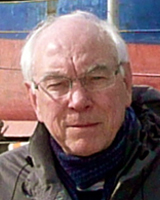
Eddie Bernard
(Tsunami Consultant, USA)
As former Director of NOAA's Pacific Tsunami Warning Center and Pacific Marine Environmental Laboratory,
Eddie Bernard, Ph.D. Oceanographer, has over 50 years' experience in tsunami warnings, research, education, and mitigation.
He presently consults on a wide variety of tsunami related issues with governments, academia, and the private sector.
His career goal is to have no casualties from the next tsunami.
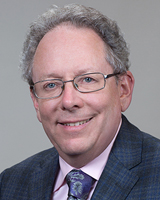
Andrew Gordon
(Department of History, Harvard University)
Andrew Gordon is the Lee and Juliet Folger Fund Professor of History at Harvard University. His teaching and research focus primarily on modern Japan, and he has published numerous books and articles on Japanese History, including the widely used textbook A Modern History of Japan. In 2011, while serving as director of the Edwin O. Reischauer Institute for Japanese Studies, Gordon led the Institute in founding the Japan Disaster Archive (jdarchive.org). This is a digital archive project which seeks to preserve the vast array of digital records concerning the March 11 disaster in Japan and its aftermath. It makes those records available to a global community of citizens, students, and scholars in close partnership with many organizations in Japan, including the National Diet Library and Tohoku University.
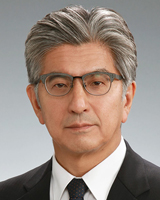
Kenji Satake
(Earthquake Research Institute, the University of Tokyo)
Kenji Satake has studied giant earthquakes and tsunamis in the world, using geophysical, geological and historical approaches. He was the chair of IUGG (International Union of Geodesy and Geophysics) Tsunami Commission from 2003 to 2011, during which period the 2004 Indian Ocean and 2011 Tohoku tsunamis occurred. He is a fellow of American Geophysical Union, the president of IASPEI (International Association of Seismology and the Earth's Interior), and the editor–in–chief of Geoscience Letters, the official journal of Asia and Oceania Geosciences Society.
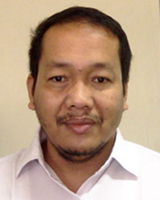
Syamsidik
(Tsunami Disaster Mitigation Research Center, Syiah Kuala University)
Syamsidik is a coordinator of tsunami research cluster at Tsunami and Disaster Mitigation Research Center (TDMRC) Universitas Syiah Kuala in Banda Aceh–Indonesia. He obtained his doctoral degree from Toyohashi University of Technology –Japan in 2009, majoring in Coastal Engineering. He has been also a lecturer at Civil Engineering Department at the University for more than 20 years. In recent years, his researches focus on tsunami mitigation and preparedness, coastal engineering, and sediment transport. In 2019, he led a team to assess progress of long–term tsunami recovery process in Aceh after 15 years of the 2004 Indian Ocean tsunami. Some of the results will be presented in this symposium.
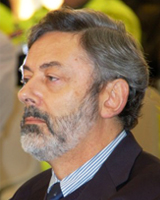
David Alexander
(Institute for Risk and Disaster Reduction, University College London)
David Alexander is Professor of Risk and Disaster Reduction at UCL. He teaches emergency planning and management. His books include "Natural Disasters", "Confronting Catastrophe", "Principles of Emergency Planning and Management", "Recovery from Disaster" (with Ian Davis) and "How to Write an Emergency Plan". He is the founding Editor–in–Chief of the International Journal of Disaster Risk Reduction, and Vice–President of the Institute of Civil Protection and Emergency Management. His research interests include natural hazards, earthquake disasters and emergency planning and management. He is currently working on a new book on emergency management, a companion to his recent emergency planning volume.
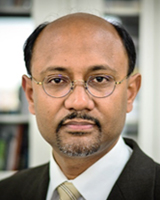
Rajib Shaw
(Graduate School of Media and Governance, Keio University)
Rajib Shaw is a professor in Graduate School of Media and Governance of Keio University, Japan.
He is co–founder of a Delhi based social entrepreneur startup, Resilience Innovation Knowledge Academy (RIKA),
and chair of the board of two Japanese non–government agencies: SEEDS Asia and CWS Japan.
He is the Co–chair of the Asia Pacific Science Technology Academic Advisory Group (APSTAAG),
and CLA for IPCC's 6th Assessment Report.
Professor Shaw has 50 books and more than 400 research papers in the field of environment, disaster management and climate change.
More about his work can be found in: www.rajibshaw.org
Contact
Email: tfc_webinar2*grp.tohoku.ac.jp (change * to @)
Hosted by
- Tohoku Forum for Creativity, Tohoku University
- International Research Institute of Disaster Science (IRIDeS), Tohoku University